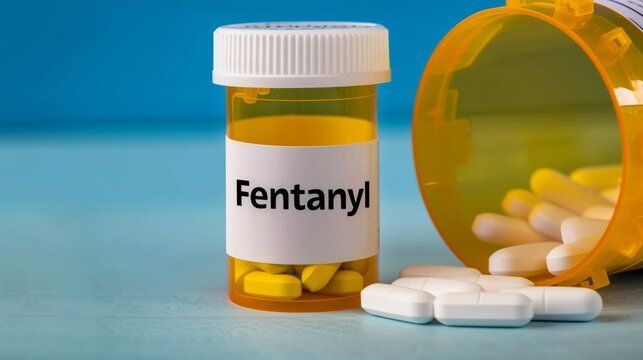What is Fentanyl
Advance Minds Blog
A safe space to explore subjects within the community such as mental health, substance abuse and personal identity.
Our safe space also provides the opportunity for real individuals to express their hardships and success through writing.
What is Fentanyl?

Fentanyl is a potent synthetic opioid that is primarily used in medical settings to manage severe pain, often after surgery or in cancer patients. It is significantly more powerful than other opioids, such as morphine or heroin, with some estimates suggesting it is up to 100 times more potent than morphine. While fentanyl has legitimate medical uses, it has also become a major contributor to the opioid overdose crisis due to its potency and widespread illegal distribution.
Medical Uses of Fentanyl:
- Pain Management: Fentanyl is prescribed for severe, chronic pain when other painkillers are ineffective, particularly for cancer patients or post-surgical pain.
- Anesthesia: It is sometimes used as part of anesthesia during surgeries.
- Forms: It can be administered via patches, lozenges, injections, or IV in hospitals.
Illicit Fentanyl:
Illegally produced fentanyl has become a major issue in the illicit drug market, often mixed with heroin or counterfeit prescription pills. It’s highly dangerous due to its potency and the difficulty in controlling doses when taken outside of a medical setting.
Why Fentanyl Is Dangerous:
- Extremely Potent: A very small amount of fentanyl can cause a fatal overdose, especially when taken unknowingly in contaminated drugs.
- Rapid Onset: Fentanyl acts quickly, which can lead to sudden respiratory depression, the primary cause of overdose deaths.
- High Risk of Overdose: Even experienced drug users are at high risk of overdose due to the difficulty in gauging its strength.
Symptoms of Fentanyl Overdose:
- Severe respiratory depression (slowed or stopped breathing).
- Extreme drowsiness or unconsciousness.
- Cold, clammy skin.
- Pinpoint pupils.
- Blue-tinged lips or skin (indicating lack of oxygen).
Treatment for Fentanyl Overdose:
- Naloxone (Narcan): This is an opioid overdose reversal drug that can be life-saving if administered quickly during a fentanyl overdose. Due to fentanyl’s strength, multiple doses of naloxone may be required to reverse the overdose.
Addressing Fentanyl Addiction:
- Medication-Assisted Treatment (MAT): Medications like methadone, buprenorphine, and naltrexone can help manage opioid dependence, including fentanyl addiction.
- Counseling and Therapy: Cognitive-behavioral therapy (CBT) and other forms of counseling are critical in addressing the underlying psychological aspects of addiction.
- Support Groups: Peer-support programs, such as Narcotics Anonymous (NA), can be beneficial in ongoing recovery efforts.
The Role in the Opioid Crisis:
Fentanyl has played a significant role in the rising number of opioid overdose deaths in recent years. Due to its potency, even a small miscalculation in dosage can lead to fatal outcomes, making fentanyl one of the deadliest substances on the illegal drug market.
Prevention and Public Awareness:
Public health efforts focus on raising awareness about the risks of fentanyl, increasing the availability of naloxone, and improving access to addiction treatment services to help reduce the harm caused by this powerful drug.
















